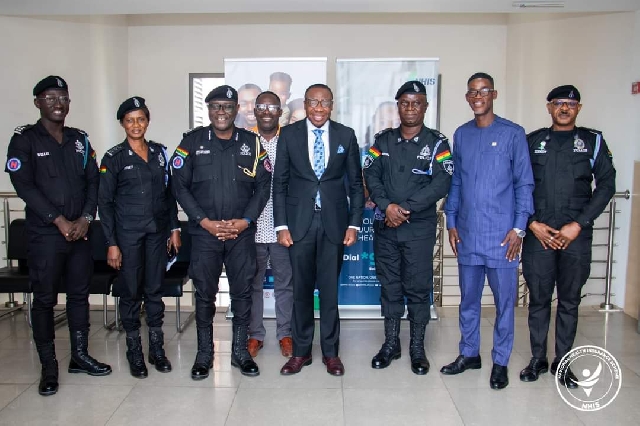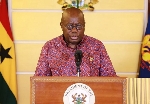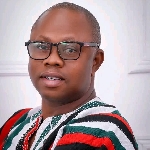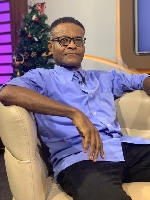Dialysis support programme: NHIA considers inclusion of Police and 37 Military hospitals
 Dr. Dacosta Aboagye in a pose with Police Hospital management team
Dr. Dacosta Aboagye in a pose with Police Hospital management team
A delegation from the Police Hospital, led by its Medical Director, COP Dr. Samuel Otu-Nyarko, paid a working visit to the National Health Insurance Authority (NHIA) on Thursday, September 12, 2024, to seek support in addressing operational challenges.
The team was received by NHIA's Chief Executive, Dr. Dacosta Aboagye, and his team.
The meeting focused on the financial burdens facing the Police Hospital, with Dr. Otu-Nyarko outlining the high costs associated with fulfilling its mandate of providing free healthcare to police personnel, their dependents, suspects, convicts, victims, and unidentified individuals.
He noted that this obligation has led to limited cash flow and high operational costs.
"Due to the requirement to provide free healthcare, many police personnel are not enrolled in the National Health Insurance Scheme (NHIS) and cannot benefit from the automatic absorption provided to SSNIT contributors because the service operates under CAP 30," Dr. Otu-Nyarko explained.
He also highlighted other financial strains, including costs related to quarterly mass burials, treatments for unidentified patients, and dialysis treatments.
The hospital currently supports 52 dialysis patients, who each undergo three sessions weekly, amounting to an annual cost of approximately GH¢6.5 million.
He noted that while civilians pay GH¢600 per session, the financial burden on the hospital remains substantial.
As a result, he appealed for NHIA's support to ease these costs and improve health outcomes.
In response, Dr. Dacosta Aboagye outlined how the National Health Insurance Scheme could be tailored to meet the specific needs of the Police Hospital.
He commended the hospital’s efforts to register its 14 satellite facilities under the NHIS, which would boost funding and help reduce operational costs.
Dr. Aboagye recommended that all police personnel and their dependents register under the NHIS, further cutting down on the hospital’s expenses.
He also expressed his support for the hospital’s dialysis programme, acknowledging the high costs involved, but requested a formal proposal detailing current needs and patient numbers for potential inclusion in NHIA's support programme.
However, he clarified that the hospital could not immediately be included in the NHIA's dialysis support due to budget constraints.
Instead, he assured that the NHIA would consider reallocation of funds for corporate social responsibility initiatives in the interim.
Additionally, he revealed that an actuarial study is underway to expand the dialysis support programme, with the Police and 37 Military Hospitals being considered for future inclusion.
Dr. Aboagye also suggested the hospital explore private insurance schemes to cover the 5% of diseases not included under NHIS primary care.
He proposed a top-up insurance programme for police officers, describing it as an affordable and beneficial option to enhance the hospital’s operational capacity.
The NHIA chief reaffirmed the authority’s commitment to supporting healthcare providers like the Police Hospital and ensuring the effective implementation of the NHIS for the benefit of all stakeholders.
Source: Classfmonline.com/Cecil Mensah
Trending News

Take firm action against threats to our country's stability, harmony – Akufo-Addo to Security Services
01:14
President inaugurates Ghana’s largest Naval vessel, GNS Achimota
13:56
Bishop Salifu Amoako's car,five others involved in accident at Tesano
14:29
2024 national honours: Full list of recipients
16:57
The New Ghana Social Justice Forum calls for emergency action to impound gov't vehicles in transit
12:54
Dome-Kwabenya: We won't allow a re-run of poll-NDC warns
14:17
NDC slams EC over emergency IPAC meeting mix-up
10:27
Mahama, NDC will not let you down – Krachi East MP-elect assures
15:14
Re-collation of results after declaration not new – EC justifies move in 9 constituencies
11:37
Artist Nicholas Kowalski raises alarm over rising inequality and unfairness in Ghana
14:31




